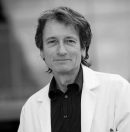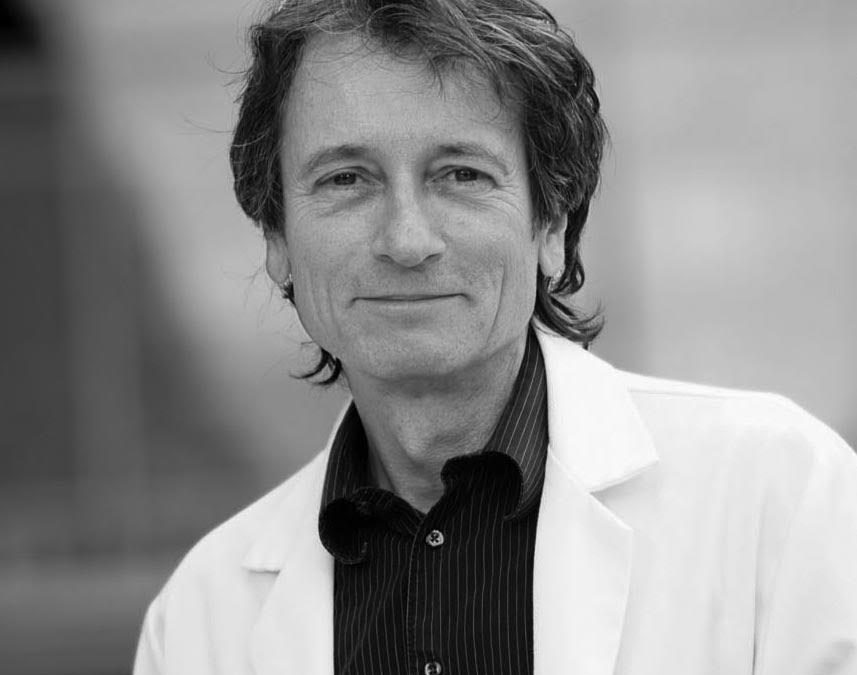
Speaker: Mark Tuszynski, Ph.D.
Affiliation: Neurosciences
Bioengineered Scaffolds for Spinal Cord and Peripheral Nerve Injury
Departments of Neuroscience, University of California San Diego, San Diego, La Jolla, CA and 2Veterans Affairs Medical Center, San Diego, California, USA
There exists a great unmet medical need to develop novel therapies that promote axonal regeneration after spinal cord injury, and therapies that accelerate and organize axonal regeneration after peripheral nerve injury. Realization of this goal will require insight into principles of both bioengineering and systems neuroscience.
Among the challenges to be addressed for the treatment of nerve injury are: 1) biocompatibility, 2) material composition, 3) material stiffness, 4) material degradation, 5) topography of axon growth in strictly linear fascicles across lesion sites, 6) enrichment with components that support axon growth (stem cells in the CNS; permissive extracellular matrix molecules and growth factors in the PNS), and 7) ease and scalability of manufacturing.
In models of spinal cord injury, we use advanced microscale 3D bioprinting to fabricate a scaffold mimicking the complex fascicular architecture of the spinal cord. The printed scaffold is simply and rapidly produced, reduces foreign body responses, and, when loaded with neural stem cells, supports linear, aligned host axonal regeneration in the most challenging model of rat spinal cord injury, complete transection. We are scaling this technology to primates.
In models of peripheral nerve injury, we use embossing techniques and 3D printing to generate microarchitecture scaffolds to guide regenerating axons across long injury gaps. Once again, we replicate the complex fascicular architecture of the peripheral nerve. Ongoing work in this model indicates that scaffolds exhibit superiority to existing devices for peripheral nerve repair, restoring spinal cord-to-muscle connectivity.
Collectively, this work supports the utility of bioengineering approaches to treat nervous system injury. Supported by the NIH and Veterans Administration.
Biography:
Mark Tuszynski is a Professor of Neurosciences at the University of California – San Diego, and the Founding Director of the UCSD Translational Neuroscience Institute. He received his undergraduate and M.D. degrees from the University of Minnesota (Minneapolis), clinical training in neurology at Cornell University Medical Center in New York, and a Ph.D. in neuroscience at the University of California – San Diego. Dr. Tuszynski’s research focuses on central nervous system plasticity in animal models of learning, Alzheimer’s disease, spinal cord injury and peripheral nerve injury. He investigates nervous system growth factors, stem
cells, tools of gene delivery and bioengineering approaches in many of these studies.
In 2001 Dr. Tuszynski began the first human clinical trial of gene therapy to treat an adult human neurodegenerative disease, testing the effects of nerve growth factor gene delivery in patients with early Alzheimer’s disease. He subsequently initiated first-in-human clinical translational programs of neurturin gene therapy in Parkinson’s disease (as founder of the company Ceregene, Inc), brain-derived neurotrophic factor therapy in Alzheimer’s disease, and neural stem cell therapy in spinal cord injury. He has participated on the scientific advisory boards of numerous biotech, small pharma and large pharma companies, and has assisted in successful regulatory filings for new drugs and therapies for Alzheimer’s disease, Parkinson’s disease, spinal cord injury and multiple sclerosis indications. He has won 21 research awards and is the author of over 200 scientific and medical publications in top journals.
Date/Time:
Date(s) - Apr 25, 2019
12:00 pm - 1:00 pm
Location:
Engineering V, Room 2101
410 Westwood Plaza Los Angeles CA 90095

